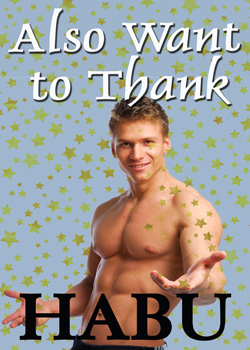Rising heartthrob movie actor Dillon Drake is told that he would have to kiss a lot of frogs if he wanted to rise in the movie business in Hollywood, which he’s also told in no uncertain terms is a very gay town under the surface. Dillon plays the game and he does rise in the business, but the questions are where is the edge of what he can take and what would the fallout be of going over the edge? How big a splash does he have to make to escape the frogs and where and how will he make the break?
“Now it’s time for the awarding of the Golden Globe for best supporting actor in a feature film.” Dillon perked up a bit when the MC rolled through his name while reading off the list of nominees.
“And the winner is, for Fire Down the Valley, Dillon Drake.”
The spotlight picked Dillon out at his table, he gave a sloppy grin, and Black and Marshall helped him rise. Black helped him all the way to the stairs up to the stage and then up onto the stage as well. The young movie star staggered through the last twenty feet of level stage on his own, made three grabs at the statuette before snagging it, and then swung around to take the microphone.
“Bet cha’all didn’t know I could act too,” he snorted into the mike. This was met with a smattering of nervous laughter.
“Well, I think this is great, just great. Thank you. Even if the studio couldn’t believe it could happen. But I want to thank the studio and all of those who screwed—excuse me—supported me on the way up. As always, my agent, all hands Walt Whalen, and then that happy couple who shared me—I mean shared their secrets of acting with me, Delores Mendez and Malcolm Strange. And let’s not forget the money men, Craig Townsend and Art Marshall, who bought my ass—I mean believed in me enough to make this movie and others—like Paradise Ranch” . . . he paused here for the applause, as stars from the movie, Delores Mendez and Malcolm Strange, half rose from their chairs to acknowledge the attention . . . “vehicles for me to show that I was more than just a tight ass—although, for them, that’s what I mostly was.”
“And let’s not forget our dear departed Fletcher Falwell,” he said, pointing the empty chair at his table, with the spotlight dutifully beaming there, “who truly was responsible for Fire Down the Valley and who cast me in it after a nice long tryout on the casting couch.” This was met with a few gasps from the audience—not because actors routinely did it for parts but because he referred to it publicly—and the “go away” music started in the background. “This is for you, Fletcher,” Dillon said, raising his statuette high. “Here’s hoping that the fancy tomb built at Forest Lawn with the money we made from Fire has a double slab.”
The music rose in volume, almost, but not quite, drowning out whatever Dillon Drake had to say next. “And, last but not least, to that black bull, Scott Black, who has reduced me to—I mean made me—what I am today.” At a signal from Art Marshall, Black was on stage, “aiding” Dillon to return to his seat.


